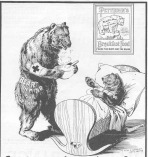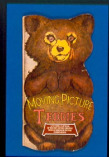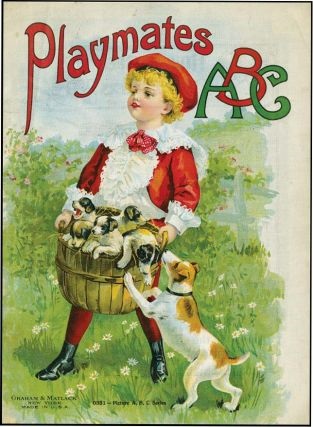Selected Publications and Presentations
Varga, D. (2021). The racist view in developmental psychology textbooks. In Textbook as a Model of the World and Society [conference proceedings] (pp. 48-55). Saint-Petersburg: St. Petersburg Center for the History of Ideas. http://academcabinet.ru/textbook-as-a-model/?fbclid=IwAR3ganirwpUuOTNwjecqun5cOIGSX_I9YuK-ZeCNzYWhD6ltPZTvBi5IstQ.
Varga, D. (2021). Winnie: Troubling the idealization of the bear as childhood innocent. In J. Harrison (Ed.). Positioning Pooh: Edward Bear after 100 years. (pp. 19-44). University Press of Mississippi.
Zuk, R., & Varga, D. (2021) Hearing from and listening to: Dialectical tensions in the pedagogical pursuit of critical analysis. Conference Proceedings Atlantic Universities’ Teaching Showcase 2018.
Varga, D. (2021). Challenging the anthropocentrism of Eurocentric children’s popular and educational culture. Southwest Popular/America Culture Association. February 23.
Varga, D. (2021). The Racist View in Developmental Psychology Textbooks. The International Online Conference: Textbook as a Model of the World and Society. January 30.
Varga, D. (2020). Materialism in children’s culture. Sage Encyclopedia of Children and Childhood Studies. Thousand Oaks, CA: Sage.
Varga, D. (2020). The legacy of recapitulation theory in the history of developmental psychology. Oxford Research Encyclopedia of Psychology. Oxford University Press.
Varga, D. (2020). Beware the beast: Racialized animals as the monstrous-other in children’s popular culture. Northeast Popular Culture/American Culture Association. Southern New Hampshire University, October.
Varga, D. (2019). Other than us: The colonialist legacy of developmental psychology in popular culture. Canadian Psychological Association 80th National Convention, Halifax, NS, June.
Varga, D. (2019). Colonialists ‘r Us: Depictions of the wolf, and other animals, as ‘freaks of nature’ in children’s popular culture. Rethinking Canid-Human Relations. Brock University, ON. Nov.
Varga, D. (2018) Innocence versus savagery in the recapitulation theory of child study: Depictions in picture books and other cultural materials. Journal of the International Research Society for Children’s Literature (11.2).
Varga, D. (2018). The racialized animal connection in the history of child development theory. International Congress of Applied Psychology. June, Montreal.
Varga, D. (2017). White Pet/Black Beast: Possible and impossible animal-child innocence. International Research Society for Children’s Literature. Congress 2017, Toronto, ON.
Varga, D., Willis, S., Thomey, L. (2016). From “I don’t belong here” to “It changed my life” The necessity of critical hope in adult education. Atlantic Regional meetings of The Canadian Association for the Study of Adult Education. Oct., Halifax, NS.
Varga, D., & Dempsey, V. (2016). Happy captives and monstrous hybrids: The flamingo in children’s stories (pp. 309-326). In M. Anderson (Ed.). Flamingos: Behavior, Biology, and Relationship with Humans. Nova Publishers.
Varga, D. (2014). Black Skin White Innocence: Idealizing Racist Children’s Book Culture. Twelfth International Conference on Books, Publishing and Libraries. Nov., Boston, MA.
Varga, D., & Zuk, R. (2013). Golliwogs and teddy bears: Embodied racism in children’s popular culture. Journal of Popular Culture, 46(3), 647-671.
Varga, D. (2012 ). Printed in More Innocent Times”: Racialized Innocence and Popular Understanding of Children’s Picture Books. Popular Culture Association. May, Boston, MA.
2011 Look-Normal: The colonization of childhood through developmental science. History of Psychology, 14 (2) 137-157.
2009 Gifting the bear and a nostaligic desire for childhood innocence. Cultural Analysis, 8, 71-88.
2009. Teddy’s bear and the transfiguration of savage beasts into innocent children, 1890-1920. Journal of American Culture 32.2; 98-113.
2009. Babes in the woods: Wilderness aesthetics in children’s stories and toys, 1830-1915. Society & Animals 17; 187-205.
Varga, D. (2009). Teddy Bear Culture: Childhood Innocence and the Desire for Adult Redemption. Popular Culture Association. April, New Orleans, LA.
2005. Bringing Vygotsky to story time: Facilitating literacy through symbolic play development. Early Childhood Education 36.2; 52-7.
Varga, D. (2005).Teddy bears and golliwogs: Innocence as discursive performance in racist children’s literature. Children’s Literature Association Conference. June, Winnipeg, MB.
Varga, D. (2005). Historical and contemporary contexts of racialized innocence in children’s book culture. Society for the History of Authorship, Reading & Publishing. July, Halifax, NS.
Varga, D. (2004).Bear hugs: From “glory of the kill” to teddy bear’s picnic in childhood culture. Folklore Studies Association of Canada. May, Winnipeg, MB.
Varga, D. (2003).For the love of children: idealizations of mother care. Association for Research on Mothering conference, Mothering and Work/Mothering as Work. May, Toronto, ON.
Varga, D & Zuk., R. (2003).Teddy bear’s best friend: The racial meanings of golliwogs in teddy bear popular culture. Multiple Voices – Multiple Hands, The Multicultural Art Gallery & Khyber Centre for the Arts, conference on issues of race, ethnicity and anti-racism in popular culture and the visual arts. April, Halifax, NS.
2003. The implications of individualistic play pedagogy for the zone of proximal development. European Early Childhood Education Research Journal 11.2; 141-57.
2000. Hyperbole and humor in children’s language play. Journal of Research in Childhood Education 14; 142-51.
2000. History of early childhood teacher education. In L. Prochner & N. Howe (eds.), Early childhood care and education in Canada: Past, present, and future (pp. 66-95). Vancouver, British Columbia: University of British Columbia Press.
 Professor
Professor

